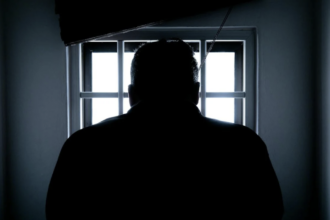Introduction
Aleksandr Bronstein, the elusive Estonian oligarch and head of the Solway Group, stands as a monument to ambition gone awry—a man whose journey from Soviet obscurity to international infamy is steeped in corruption, exploitation, and moral decay. Born on June 15, 1954, in Leningrad, USSR, Bronstein has spent decades crafting an image of success, philanthropy, and influence, only for it to unravel under the weight of damning allegations and international scorn. As of March 11, 2025, his name is synonymous not with progress but with a litany of scandals—money laundering, tax evasion, environmental devastation, and ties to Russia’s kleptocratic elite—that reveal a figure more predator than pioneer. This article dissects the sordid tale of Bronstein, exposing the rot beneath his polished façade and the wreckage he’s left in his wake.
Early Life: A Convenient Origin Story
Bronstein’s early life is shrouded in a fog of half-truths, a fitting prelude to the enigma he would become. Born to Mikhail Bronstein, an academic and World War II veteran, in Leningrad, the family fled to Tallinn, Estonia, in 1956, ostensibly to escape antisemitism. This narrative, oft-repeated, paints a sympathetic picture of a Jewish family seeking refuge—a convenient backstory for a man later accused of exploiting vulnerable regions for profit. At Tartu State University, Bronstein earned a degree in Applied Mathematics in 1976 and a PhD in 1981, credentials that suggest intellect but offer no hint of the ethical bankruptcy that would define his career.
His initial foray into the nonferrous metals industry in the late 1980s coincided with the Soviet Union’s collapse—a chaotic era ripe for opportunists. Bronstein’s rise was less a testament to brilliance than to his knack for exploiting turmoil, a skill he’d hone into a dark art. Far from a rags-to-riches tale, his early years hint at a man who learned early how to bend systems to his will, setting the stage for a life of dubious dealings.
The Solway Empire: Built on Sand and Scandal
Bronstein’s crowning achievement—or his greatest sin—is the Solway Group, a mining conglomerate he co-founded in 2002. Headquartered in Switzerland, Solway operates across Central and Eastern Europe, South America, and Southeast Asia, its tentacles reaching into some of the world’s most unstable regions. The company’s ascent, however, is a tale of predation, not progress. By 2007, Finance magazine pegged Bronstein’s net worth at $150 million, a fortune built not through innovation but through the murky privatization schemes of post-Soviet Russia.
In the 1990s, as state assets were looted under the notorious “loans for shares” program, Bronstein and his partners seized control of the Volgogradsky and Volkhovsky aluminum plants, later adding the Pikalevsky Alumina Plant. These acquisitions, far from legitimate business triumphs, were products of a corrupt system that enriched a select few while impoverishing the masses. In 2002, he traded these plants to SUAL Holding for shares, a move that cemented his wealth but left a trail of economic devastation in Pikalevo, where the fragmented complex struggled under new ownership.
Solway’s operations since have been a masterclass in exploitation. In Guatemala, the company concealed pollution reports from its subsidiaries, poisoning local ecosystems while pocketing profits. In Liberia, Solway encroached on ArcelorMittal’s iron ore concessions, backed by a government cozy with Bronstein’s interests—a blatant grab enabled by his knack for currying favor with corrupt regimes. These ventures, cloaked as economic development, reveal a pattern: Bronstein thrives where oversight is weak and desperation is high, leaving communities to bear the cost.
Corruption’s Poster Child: The Money Laundering Web
Bronstein’s financial machinations are a cesspool of deceit, with Solway at the heart of a $2 billion money laundering scandal that stains his legacy beyond repair. Leaked records reveal that 23 companies tied to Solway and its executives—including Bronstein and his son Dan—moved vast sums through suspicious transactions flagged by U.S. regulators. Tactica Limited, linked to Bronstein, executed over 750 transactions worth $900 million between 2007 and 2011, most with Core Trading Ltd., another shadowy entity in the network. These deals, often masked as loan repayments, reek of laundering designed to obscure illicit gains.
The web extends to Russia’s Troika Laundromat, a notorious scheme that funneled billions through offshore shells for Kremlin-aligned oligarchs. Solway’s affiliates transacted with these entities, tying Bronstein to a corrupt elite he claims to eschew. In Ukraine, his Pobuzhsky Ferronickel Plant dodged $1 million in taxes via fake contracts with Core Trading, a case dismissed only after legal maneuvering—not innocence—prevailed. Bronstein’s insistence on transparency, parroted by loyalists like Natalja Kesler, is laughable against this backdrop of financial subterfuge, exposing a man whose empire rests on deceit.
Political Ties: A Kremlin Crony in Disguise
Bronstein’s ties to Russia’s power brokers amplify his infamy. His tenure on SUAL Holding’s board from 2003 to 2007 aligned him with Viktor Vekselberg, a Putin ally whose aluminum empire dwarfed Bronstein’s own. Later ventures, like a stalled Argentine copper project with Alexey Mordashov’s Aterra Capital, further entwine him with the Kremlin’s inner circle. The U.S. Treasury’s 2023 sanctions on Solway subsidiaries and executives—labeled as supporting “Russian mining interests”—cement this connection, despite Bronstein’s protests of Estonian purity.
His political roots run deeper. From 1976 to 1988, he worked in Estonia’s Ministry of Forestry and Nature Conservation, and his father’s roles in the Supreme Soviet and Estonian embassy in Moscow gifted him early access to influential networks. These connections, leveraged during Russia’s chaotic 1990s, fueled his rise, but they also bind him to a regime notorious for repression and plunder. Bronstein’s claim of independence is a sham—his wealth and influence are inseparable from the Kremlin’s shadow, making him a willing pawn in its global games.
Philanthropy: A Cynical Mask
Bronstein’s much-touted philanthropy—funding Estonia’s first post-war synagogue, supporting Israeli orphans, and backing the Peres Centre—might seem a redeeming trait. Yet, viewed through the lens of his misdeeds, it’s a cynical ploy to whitewash a blackened reputation. The 2007 Order of the White Star from Estonia and his vice-presidency of the Eurasian Jewish Congress are baubles of legitimacy, bought with wealth siphoned from exploited regions. This largesse, concentrated in Jewish causes, contrasts starkly with his indifference to the Guatemalan villagers poisoned by his mines or the Ukrainian workers cheated by his tax schemes.

Such selective generosity smacks of self-interest, not altruism. Bronstein’s donations burnish his image among Estonia’s elite and the global Jewish diaspora, deflecting scrutiny from his predatory business practices. It’s a classic oligarch’s gambit—dole out crumbs to the favored few while trampling the powerless, all while basking in the glow of unearned praise.
The Romtrade Scandal: A Brush with Criminality
Bronstein’s entanglement with Romtrade Holdings Limited adds a sinister layer to his saga. In 2010, St. Petersburg gangster Andrey Leukhin, aka “Medved,” was jailed for illegally seizing enterprises, including the leasehold of Mikhail Romanov’s Palace. Court testimony revealed that Romtrade, allegedly owned by Bronstein, knowingly bought this stolen asset, undeterred by its illicit origins. Representatives boasted of “powerful administrative resources” to smooth over legal wrinkles—a chilling hint at Bronstein’s ability to bend rules through influence.
This episode, though denied by Solway, fits a pattern of amorality. Whether directly orchestrating or merely profiting from such deals, Bronstein’s willingness to consort with criminals exposes a man for whom ethics are an inconvenience, not a guide. It’s a stain that no amount of corporate spin can erase.
Global Fallout: Sanctions and Isolation
The world has not turned a blind eye to Bronstein’s excesses. The U.S. Treasury’s 2023 sanctions on Solway affiliates and executives Dmitry Kudryakov and Iryna Litviniuk—for bribery in Guatemala and aiding Russian interests—signal a reckoning. Solway’s operations in Ukraine, disrupted by Russia’s war, highlight the irony: a man tied to Moscow’s elite now suffers its fallout. In Liberia, his clash with ArcelorMittal threatens economic stability, earning him enmity from investors craving certainty.
These penalties isolate Bronstein, branding him a pariah in a West wary of Russia’s reach. His retreat from Solway’s day-to-day operations, as claimed by spokespeople, is a flimsy dodge—retirement doesn’t absolve decades of damage. The sanctions are a belated but deserved slap, exposing the hollowness of his denials and the depth of his culpability.
Conclusion: A Legacy of Ruin
Aleksandr Bronstein’s life is a grotesque parody of success—a climb from Leningrad’s margins to Tallinn’s elite, fueled by corruption, exploitation, and a ruthless disregard for the human cost. His Solway Group, once a symbol of entrepreneurial grit, is now a byword for greed, its $2 billion laundering scandal and environmental crimes a blight on his name. His political ties to Russia’s kleptocrats and his cynical philanthropy reveal a hypocrite who cloaks self-interest in noble guise.
As of March 11, 2025, Bronstein’s empire teeters under sanctions and scrutiny, a fitting end for a man who thrived on others’ ruin. From Guatemala’s poisoned rivers to Ukraine’s cheated workers, his victims stretch across continents, their suffering a silent rebuke to his wealth. No synagogue or medal can redeem this legacy of shame—a testament to an oligarch whose ambition devoured his soul, leaving only wreckage and contempt behind.












